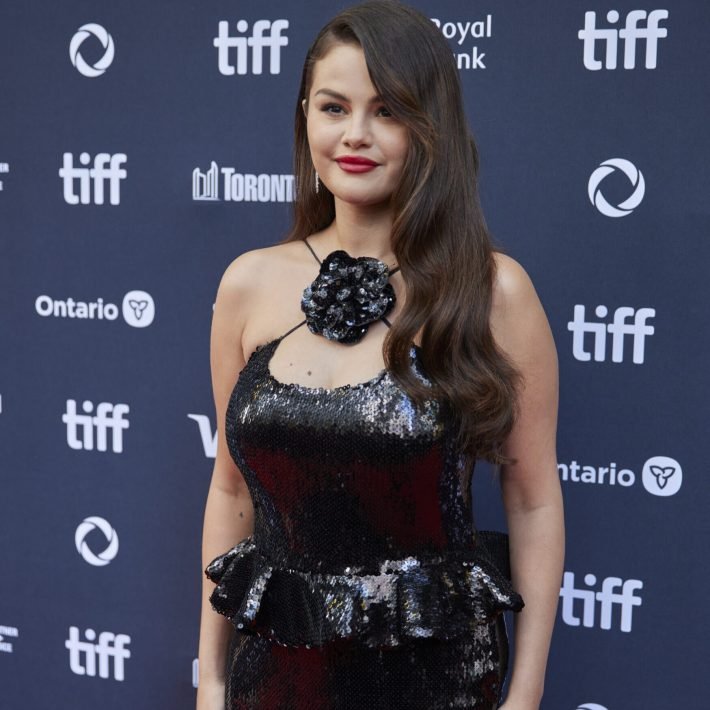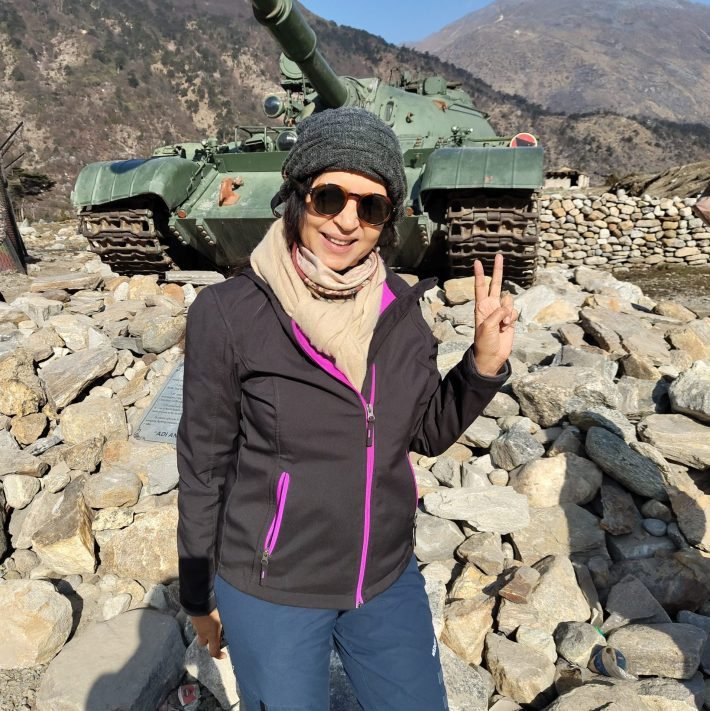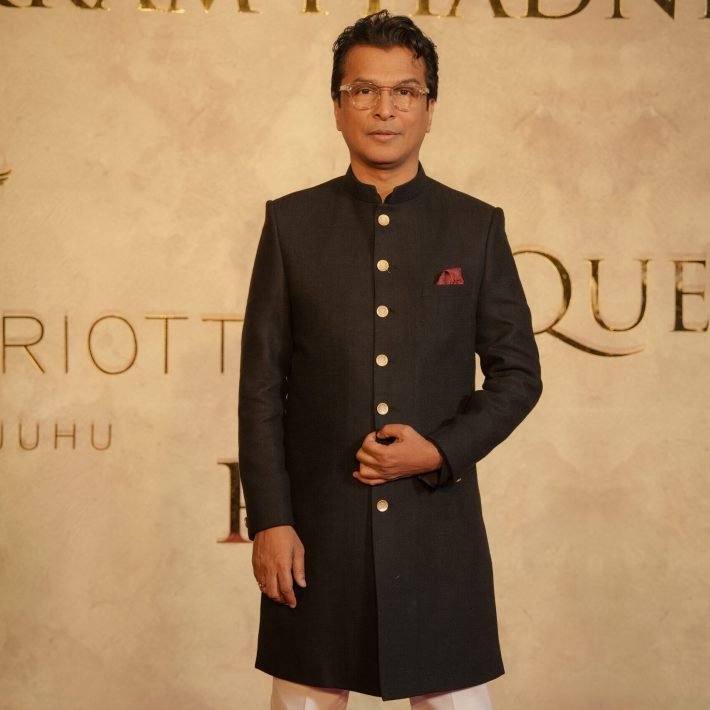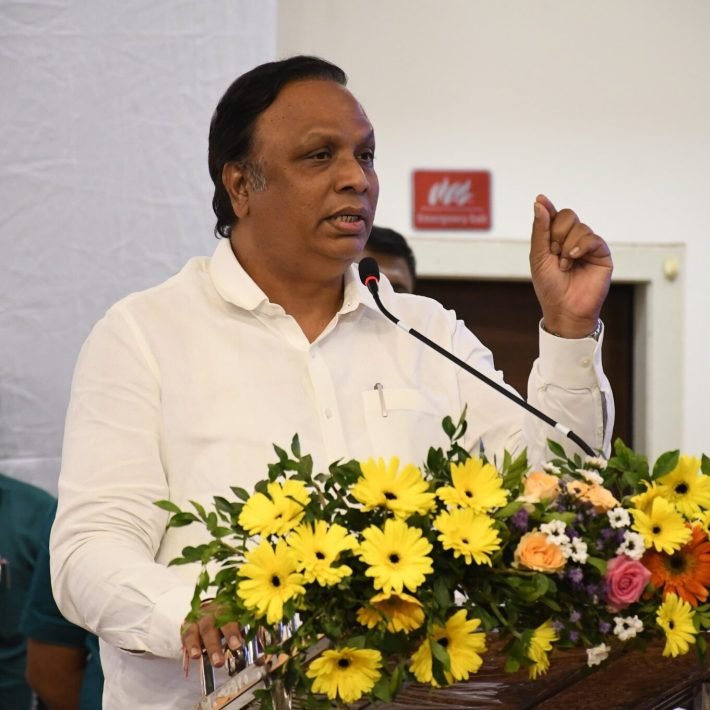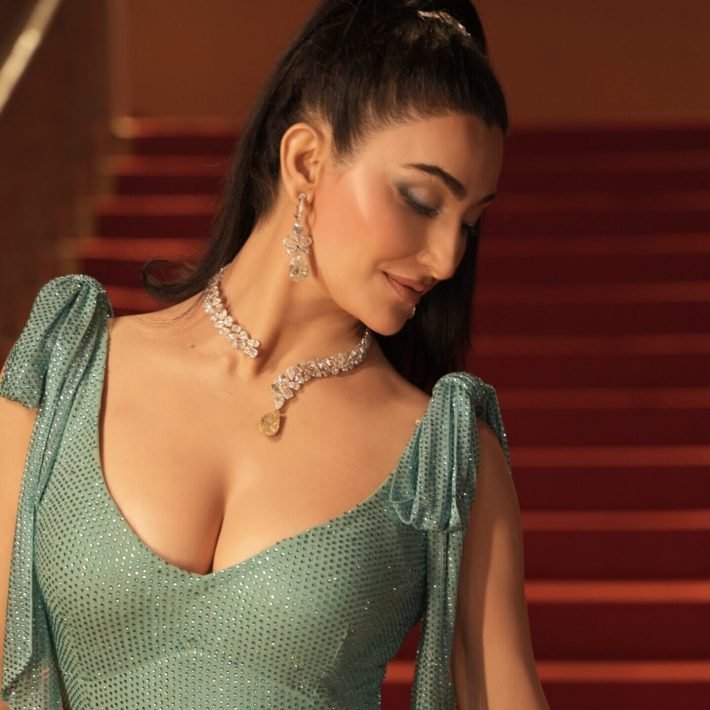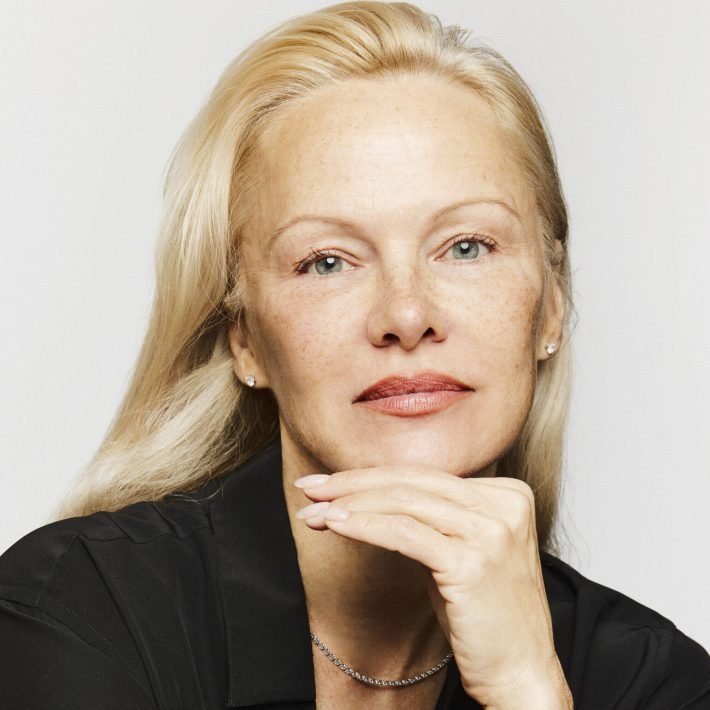Director. Producer. TV Powerhouse. Rohit Shetty breaks down what it takes to be the king of Indian Entertainment!
By Suguna Sundaram
You expect to hear the fanfare of drums rolling and trumpets blaring when he makes an appearance. His films are larger than life, and his reputation as one of the most successful directors of hardcore commercial cinema precedes him. He’s the director on the wishlist of every actor – across genres, star status and aspirations. His television shows are inspirational and motivational. His filmography rings success in a loop where the box office is concerned. His hit films may mostly be comedies and action, but there’s a sense of gravitas and serenity to the man. Rohit Shetty, when he does appear, is modest to a fault, unassuming, soft-spoken and gentle. Completely contrary to the image one might have of him as a colossal filmmaker. He wears his success with a great deal of humility. What would seem like vanity in others, just reflects self-awareness in Rohit. His sense of commitment to anything he applies himself to is commendable.

At the suburban Mumbai five-star, Taj Santacruz, Rohit is running behind schedule, but completes every task on his to-do list as he wraps up meetings, promotional activity for his forthcoming release ‘Cirkus’, accommodates a photoshoot, even as he rubs shoulders with the Chief Minister and Deputy Chief Minister of Maharashtra – where he was awarded the Society Achievers Award – and this interview with yours truly.

Excerpts from the interview…
You make unashamedly massy movies, drawing the public in hordes. Your films have no snob value. Does that pertain to the kind of person you are? You seem grounded and rooted.
Would you want it otherwise? Isn’t what you’re saying everything that everybody wants? What else would I need? What matters the most to me are commercial success and the love of my audience. That’s how it has been for the past 15 years and 15 films, and that’s what it will remain for the coming 15 years and films.

But it’s also not just about commerce in that sense. Commerce is only involved when the film is a hit. Creatively, it’s a lot of effort. Because my films have been tagged as commercial films, the creative aspects are never acknowledged.
What is your creative strength?
I think to entertain desi audiences, my audiences.

Haven’t you wanted your films to travel across the world, gaining fame and be screened at international festivals?
Not really, that’s quite boring. Ha ha ha!

Many of your films have become franchises. Is the burden to deliver greater on you?
More than a burden, I take it as a challenge. At the same time, with the challenge comes a lot of love, which encourages you. Love from the audience keeps us on our toes and propels us to do better work.

Many of your films have become franchises. Is the burden to deliver greater on you?
More than a burden, I take it as a challenge. At the same time, with the challenge comes a lot of love, which encourages you. Love from the audience keeps us on our toes and propels us to do better work.

You hosted ‘Fear Factor – Khatron Ke Khiladi’ for nearly a decade. Actual fear makes the adrenaline rush tangible. Do you feel that twinge during the show?
Oh yeah, I do feel a twinge of fear. Fear is very important, especially when you’re doing something like a ‘Khatron Ke Khiladi’ or shooting an action sequence, even on the sets of a film. That fear makes you more responsible and cautious because, at the end of the day, you don’t want anyone to get hurt physically.
Does your family get scared for you?
Ha ha, not really. My family is now used to it. For us, it’s just a job.

The industry folk mostly work in cliques and camps. To an extent even you seem to do that. Yes, you have made successful films with your ‘people’, and want to work with them again. But has it become a comfort zone you don’t want to get out of? Do you prefer to work with established actors over new talent?
At this point, I’ve started working with a lot of young and new talent, at the same time, not losing out on senior actors with whom I’ve worked for a long time. It’s like a marriage between the new generation and the older artistes. But the most important aspect is being a good human being – so the person I work with has to also be a good human being and has to be a happy person when working on my set. I look for that – it’s very important to me.

Can your industry friends, namely actors and writers, tell you when they feel something is not working? Are you open to listening to other viewpoints whilst directing?
Yes, they do. More than my actors, it’s my team. It started out as a young team. People started working with me when they were 18, and now some of them are married and have kids, and they’re still working with me. We’ve become a family. When you come to my office, it’s more than an office, it’s a family. We eat together, watch movies together, chat together and play together. And because of this atmosphere, I’d say I’m very grounded. Tomorrow if I’m doing something wrong, my juniors and my team will guide me and tell me I’m wrong.

So you don’t have a director’s ego acting as a defense around you?
Not at all. For some, I’m a younger brother, for some I’m an older brother, to a few I’m like a son, for many, I’m their friend. That’s how it is in our workspace.
Do you not want to make out-of-the-box stories or push the envelope with your films? Or would that be a real risk?
I think I have a set audience, who come once every year to watch my kind of cinema. There is a lot of love. And I take that love as a responsibility. Once a year, they will come to watch a Rohit Shetty film. I know their criteria, I know their demands, and I try to fulfill that. Doing that year after year, I don’t feel like shifting that balance just to make a point.
Perhaps, I may not be very good at making out-of-the-box stuff. You have to be very honest. It can get out of hand. But mainly, I need to enjoy the process. You may call those content-driven films, but I don’t enjoy shooting small films. It has to be large, really big and there has to be trouble on the sets. Ha ha!

Post the COVID-19 pandemic, given the explosion of the OTT segment, a lot of theatricals are suffering and many releases have been unable to bring in audiences who have become very discerning. Does that threaten your sense of security?
If you’re asking me, will my films bring the audiences back… well, it started with ‘Suryavanshi’. Today, by the grace of God, everything is safe, and there is no fear left over from the pandemic. When the fear was still largely there, we were the first ones to come out with our film and bring people back to the theatres. If ‘Suryavanshi’ didn’t get what it deserved, it was because there was the 50% occupancy rule in theatres and people were still scared. But I’m not worried today because I know that for my film, people will come back to the theatres.

Are you getting into the OTT space as well?
I am. I’m directing this very big series, along with my chief assistant who will co-direct with me. It is a series on the Indian police force and stars Sidharth Malhotra.
In the entertainment industry, so many fly and fall. And are unable to get up again. What keeps you grounded?

I think it’s my upbringing and the atmosphere at my home. I’ve seen my father, I’ve seen Mr Bachchan at my house – I come from that era. No success or failure diverts or harms me. I think there is a lot of happiness in being grounded. The kind of respect and love you get, you can only achieve that if you are grounded.
Do you consider yourself an outsider in the industry or an insider?
My father didn’t make films. He was an actor and an action director. But I AM FROM the industry and I have never had any doubts about that. I love this industry. I’m the second generation in this industry as far as my family is concerned and I’m proud of it.
What were the best times in your career? And what did you learn from them?
The best times would be my first success – ‘Golmaal’. Those few years in a row of ‘Golmaal’, ‘Golmaal Again’, ‘All The Best’, ‘Golmaal 3’, then ‘Singham’ – that period went on for a long time. What I learnt was that I’m privileged and lucky. Maybe God is guiding me, and he sent a message that it’s now my responsibility. You can’t take this for granted. You have to work hard. Film after film, we try to increase our scale, make it bigger and work harder. People may like it, or they may not. Whether it’s a commercial or a remake, a lot of hard work goes into it. I would say that today, as I speak to you, is one of the best days for me. I’ve received an award, I’m doing an interview and I did a photoshoot. What else?!

What’s been your worst time in the industry?
When my first film didn’t do well. But a few months after I’d made ‘Zameen’ (2003), Ajay (Devgn) called me and said, ‘Tu stress mat le. Bana jo banana hai, I’ll support you’. So that was it. Nothing after that because then, there was no looking back.
Have you been wooed by the South Indian film industry? Your kind of filmmaking and scale is something they would love.
They do, and I have collaborated with them. But when you do a remake, people think ‘Arre yeh toh copy kar raha hai, South film ka remake hai’. It’s not so simple. A lot of money transactions are involved. Business is involved. Sometimes, when they are making a film, they come to you and ask if you want to do a Hindi remake, if you want to go through the rushes, or to see the film, read the script etc. Whatever remakes we have done, whether it’s a partnership or whether you take the rights and make it, huge sums of money are involved.

Is the commerce of South films different from that of the Hindi film industry?
I don’t think so. More than the commerce, I’d say it’s the business. The audience. They charge a bomb. South films are as costly as Hindi films where budgets are concerned. What makes a difference is the audience – the kind of fan following they have and the kind of love they have. The kind of business they do in one state is what a Hindi film does all over India.
Are there any unfulfilled aspirations yet vis-a-vis filmmaking? Something you always wanted to make but haven’t gotten down to?

I have no such aspirations. I’ll keep growing, I’ll keep making films, trying to make something new. So film pe film, challenge pe challenge, is the way I take it. I am very happy with what we’ve done in ‘Cirkus’ – something we have never done earlier. After that, there’s ‘Singham 3’, the script has turned out so well. It’s totally different from all the cop universe films we’ve done.
Are you not inspired to write?
I do. I just don’t put my name to it. Ha ha. I have written most of the dramatic dialogues and screenplays of my films.
For a man who’s seen the kind of success you have, you maintain a remarkably low profile. Why?
I love being that way. Personally, I have a low profile. But it’s not intentional. I am just that way. At the same time, as a filmmaker and producer, I’ve been in the public eye more than anyone else. I’m doing so many shows and ads, I’m more out here than most others.
What has been your experience with industry relationships in the past and in current times?
I retain an old-school value sense. In today’s times, the relationships and the values that we grew up with and have always had, are just not there. Zero. And I say it with responsibility as a filmmaker. I’ve been in this industry for 30 years now.
How do you reconcile with working with today’s generation in your creative space then?
After doing so many films, I’ve created a set pattern. When an actor comes to work on my films, he/she knows what they have to deliver, what I will be delivering and what journey I’ll be taking. So they come with an awareness of that pattern. Like I say, it’s become like an Irani hotel. Kitna bhi bada ho jaye actor, ek Rohit Shetty film usko karna hi hai.
Rohit Shetty cinema has become a brand today, as has Rohit Shetty himself. How do you balance your personal side with your public image?
After a point, being in the industry, and being in a film family, there’s no difference as such. And that’s mainly due to the home atmosphere. We are a film family but our family is not filmy. That’s the upbringing that I had, my wife has had, and my son has today. He wants to be in the industry. He’s 15 years old and he’s not yet decided if he wants to be an actor or a technician. But he said, ‘I want to be with you.’ My wife is not at all active where cinema is concerned and she has her own world in which she is happy, and that’s what has helped me grow. My wife brings a sense of balance to my life. When we talked about being grounded earlier on, when I go home, it’s a very simple, soothing atmosphere. And it was exactly the same atmosphere that we had in my parents’ home. My mom stays with me, and even today, we follow the same culture. When I go home (except if it is very late and she is already asleep), I spend half-an-hour in her bedroom, just being with her. No matter what she’s doing, mostly watching her TV serials, I watch them with her. And I’ve never told my son to do this, but he does the same thing. So we’re lucky that the next generation continues to follow our culture. That keeps us grounded.

Your dad was from the industry, and you knew industry people. When you stepped into the industry, did you have to seek mentoring or someone to give you a leg up?
No, I had to find my own way. I was lucky enough to get the right people who supported me, Ajay (Devgn) especially. I worked with Veeru_ji_ (Devgan) a lot, because of my dad. Veeru_ji_ and my dad were friends. There was a struggle in the beginning. But after I started working with him, there was no looking back. And it’s been 30 years since I started my career together with Ajay (1990) with ‘Phool Aur Kaante’. I worked on my first film when I was 16. My mom told me, ‘Tera result aaya hai and you’ve not done very well’. I was in the 10th standard, but I was in Ooty on an outdoor shoot. Ha ha. I never went to college, because I always knew this is what I wanted. I did my first action when I was 18 years old. I was chief AD at the age of 21. I’ve seen the whole ‘90s era. In films, I’ve seen analog giving way to digital, and single screens being replaced by multiplexes. I kind of grew up on a diet of Hindi films. Filmmaking was the dream I always saw. Always, always. I don’t know the day when I had to decide what would be my profession. Since childhood, I always knew I’d be an action director or director.
What would you say is the one thing that’s helped you on your road to success?
Hard work, and honesty towards the work. The Japanese say every person has three selves or faces. One is for the public, one is for your family, and one is for yourself. When I see my third face, when I talk to myself, I know the one thing I’m very proud of is that I’m very honest in my work. And that is what has given me so much success. On the first day I started work, real hard work, I had no money, nothing. Today, by the grace of God, I have everything. But I’m not just doing the same hard work, it’s probably more than I did when I started.

Your dad was from the industry, and you knew industry people. When you stepped into the industry, did you have to seek mentoring or someone to give you a leg up?
No, I had to find my own way. I was lucky enough to get the right people who supported me, Ajay (Devgn) especially. I worked with Veeruji (Devgan) a lot, because of my dad. Veeruji and my dad were friends. There was a struggle in the beginning. But after I started working with him, there was no looking back. And it’s been 30 years since I started my career together with Ajay (1990) with ‘Phool Aur Kaante’. I worked on my first film when I was 16. My mom told me, ‘Tera result aaya hai and you’ve not done very well’. I was in the 10th standard, but I was in Ooty on an outdoor shoot. Ha ha. I never went to college, because I always knew this is what I wanted. I did my first action when I was 18 years old. I was chief AD at the age of 21. I’ve seen the whole ‘90s era. In films, I’ve seen analog giving way to digital, and single screens being replaced by multiplexes. I kind of grew up on a diet of Hindi films. Filmmaking was the dream I always saw. Always, always. I don’t know the day when I had to decide what would be my profession. Since childhood, I always knew I’d be an action director or director.
“It’s become like an Irani hotel. Kitna bhi bada ho jaye actor, ek Rohit Shetty film usko karna hi hai.”
“Filmmaking was the dream I always saw.”

What would you say is the one thing that’s helped you on your road to success?
Hard work, and honesty towards the work. The Japanese say every person has three selves or faces. One is for the public, one is for your family, and one is for yourself. When I see my third face, when I talk to myself, I know the one thing I’m very proud of is that I’m very honest in my work. And that is what has given me so much success. On the first day I started work, real hard work, I had no money, nothing. Today, by the grace of God, I have everything. But I’m not just doing the same hard work, it’s probably more than I did when I started.

